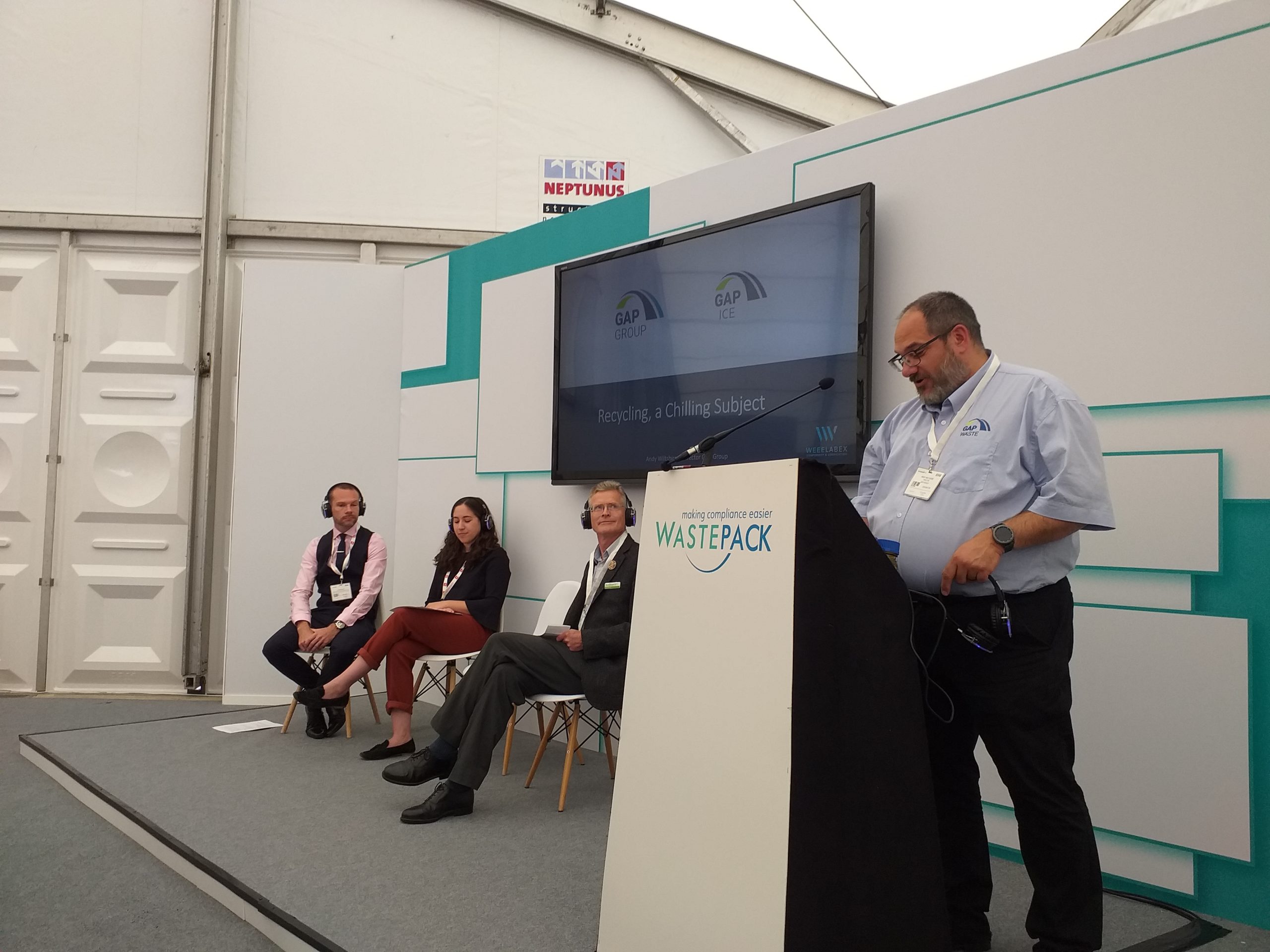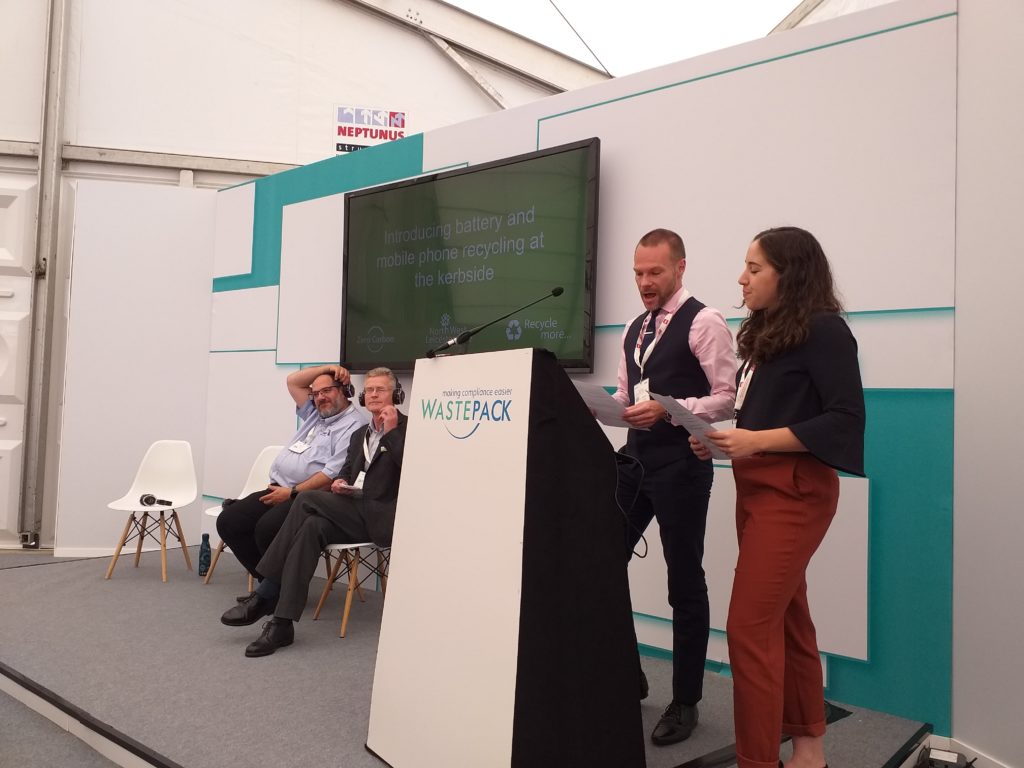Lily Walker, the council’s Recycle More officer, and John Bright, waste services development officer, made the claim at a session on waste electrical and electronic equipment (WEEE) at Letsrecycle Live on 15 September.
North West Leicestershire launched its service in December 2019 as part of its Recycle More Campaign. Since then, the council has collected almost six tonnes of batteries, though the council’s representatives said the capture rate for mobiles was “lower than we would have liked”.
Ms Walker told the conference: “The most important thing was to ensure that residents knew the service was available and when it was launching.”
She added: “Overall, we would deem the roll-out of our service a success.”
The successful roll-out was achieved through adverts on six refuse collection vehicles (RCVs), alterations to annual waste collection calendars and activity on social media including Twitter and Facebook. The council said they were most vocal about the service when it was launched but have kept going since then.
Mr Bright said engaging with staff about the introduction of the new service was also “key”. This included updates and memos, signed risk assessments, and ‘Safe System of Work’ processes.
North West Leicestershire
Representing more than 47,000 households, the council said introducing the service had enabled them to increase their household waste recycling rate to 46.3% in the 2019/20 financial year. They said their overall goal was to increase North West Leicestershire’s recycling rate to 50% by 2023.
Overall, we would deem the roll-out of our service a success
– Lily Walker, North West Leicestershire council’s Recycle More officer
The council operates source separated collections, collecting residual waste one week and dry mixed recycling and garden waste via a free service the next. It also collects all kinds of batteries, from small button to those found in laptops, and all mobile phones.
Ms Walker said introducing kerbside collections for batteries and mobiles required only “small modifications” to the rear of six RCVs, on to which they attached cages to hold the material. Ms Walker said it cost only around £400 to set up the service.
Residents are instructed to place their batteries and mobiles in “recyclable containers with a lid” rather than their red recycling boxes. If they do so anyway, the council leaves behind an advice card instructing them not to do so in future.
Fridge recycling
Meanwhile, the director of recycling firm Gap Group, Andy Wiltshire, also spoke at the session. He discussed this year’s installation of a fridge recycling plant at the company’s site in Gateshead.

The plant, which took 24 months to build, is capable of processing 100 fridges an hour. Mr Wiltshire said it captured 90% of the volatile organic compounds generated during the recycling process.
There is less than a year before revisions to hazardous waste regulations mean more stringent standards for the recycling of fridges need to be followed. Revisions to Environmental Permitting Regulations and new air emissions targets under the Industrial Emissions Directive were introduced in 2018, with operators given four years to comply. Mr Wiltshire said Gap Group’s plant was already compliant.
“This is the only plant capable of meeting the new standards set by the Environment Agency,” Mr Wiltshire said. “If plants don’t come up to standards, they’ll have to close or upgrade, and I welcome that.”
He said emissions from a “poor” fridge recycling plant were equivalent to “driving a family car to the sun”.
Proving its environmental credentials, Gap Group’s Gateshead facility received WEEELABEX certification in June 2021, becoming just the second plant in the UK with the accreditation (see letsrecycle.com story).
WEEELABEX certification is seen as the industry gold standard for the recycling of waste fridges and cooling equipment included within the European WEEE directive.
Founded in 2005, Gap Group operates a five-acre freehold site with 120,000 square foot of warehouse space. The company employs 80 people and owns a fleet of 42 vehicles.





Subscribe for free